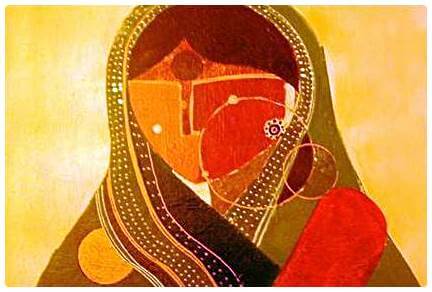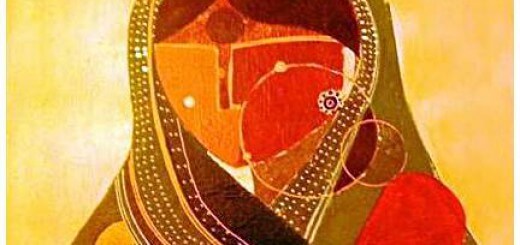Gender Equality: The Islamic Concept [Part 2]
In order to understand the concept of Gender Equity in Islam, first it is necessary that the social structure of a Muslim society must be understood and there must be an understanding of the nature of those cohesive forces that keep that structure intact. But before that we need to summarize what we have found about the Western concept of Gender Equality and how women in the western social
structure are placed in it.
We see from the above argument that in the Western culture, the concept of Gender Equality and Feminism is not of a monolithic character rather it goes to the extents on either side – on one extent we have those who believe in gender equity and on the other we have those who do not even want to recognize the physiological differences between genders. But no matter how we look at these extents, there is one common denominator, a prime mover behind the whole idea of Gender Equality and Feminism, and that is, the economics. As we have explored
through the history that the rights of women in Western societies were not granted to them voluntarily, or out of kindness, or with mutual consent or divine teachings; women had to work very hard for them because of the compulsion of the economic pressures. She was forced by circumstances and in turn she forced herself through and acquired her new status. But to gain equality with men – in education, at work, in earnings, and to prove herself as a viable human resource – she had to make painful sacrifices and give up many of her natural
rights. As a matter of fact if we look at the stage the feminist struggle is now at, we see that Western woman wants absolute freedom with no strings of responsibilities attached – not because her nature has changed but because that is what individualism driven by economic prime mover demands from her.
Unfortunately, for what she perceives as her ultimate freedom and equality with man, demands her to strip off the very essence of being a woman. She perceives marriage as an obstacle in her personal freedom because she cannot make a distinction between her personal and financial freedom – to her, the spouse is a potential financial liability. The economic compulsions have put men and women in adversarial and competitive positions and now no one wants to be a loser in this competition. So she wants to abolish the institution of marriage. She sees
economic value in her body and she wants to cash it too by recognizing prostitution as her basic human right. She perceives children as an obstacle to her freedom and she sees feticide as a way out of this responsibility. She wants feticide and prostitution to be accepted as social norms because she wants to be as guilt free as that of the Individualist man. And individualist man is indifferent because he considers these things as an obstacle to his freedom too. Perhaps, the reason for his apathy is that he thinks of himself as a survivor of someone else`s choice, while he never had one. If freedom means killing your own flesh and blood, then we should really question the worth of that freedom.
On the other hand, in Islam, the economics is just one aspect of its moral and social cosmography. It presents a complete code of life, which engineers a society with an integrated approach. It compares and views society as a human body, where if one part gets hurt the whole body feels the pain [36]. It gives its adherents a purpose of life – life has a meaning and it is to achieve the blessing of God in this world and beyond. This world is like a field, in the words of Holy Prophet (pbuh), where we sow seeds of our actions, and harvest the fruit (of those actions) in the afterworld.
In order to achieve the blessing of God one has to recognize two sets of rights. One set of rights is called the Rights of God (Haququllah) and other is called Rights of People (Haququl ibaad). The ultimate accountability with regards to these rights lies with God. A man fulfills Haququllah by offering the ritual of worship (Declaration of faith, Prayers, Fasting, Pilgrimage, and Zakat (mandatory alms)). These rights are a matter between man and God [37]. The second set of rights defines his responsibilities towards the society. These rights and responsibilities are expressed in an elaborate system of ethical values and laws. It is interesting to note that an ethical value may not be a law in Islamic society but every law also represents an ethical value. This is a delicate point to understand because that forms the basis of our understanding
of the forces that coalesce a Muslim society together. For example, being kind and loving to the orphans is an ethical value and there is no law that can enforce that but guarding their property and wealth until they become adult is an ethical value and a law. But interestingly, whether we recognize a certain ethos as only an ethical value or a law, the ultimate accountability is towards God. Without the backing of an ethical value a law creates only resentment and contempt and sometimes it is meaningless. Whereas God has stressed that the rights of people are as important as His own rights or even more so because He may totally reject a person`s fulfilling of His rights if he neglected on recognizing his responsibility towards society. So there is a mutuality and reciprocity of rights and responsibilities with ultimate accountability towards
God. This mutuality, reciprocity, and accountability in the rights and duties form the basis of constitutionality and equity in the relationships. It provides a system of checks and balances in all circumstances and maintains justice when o one is there for accountability. The mutuality between rights and duties elaborates that someone’s right is another person’s duty and someone’s duty is another person’s right. Among the people there are rights of parents, rights of spouses, rights of children, rights of other relatives, rights of neighbors, and rights of employers and employees. There are rights of Muslims and there are rights of other human beings. There are rights of animals, resources and objects. If there is a conflict between the rights of one individual of the society with the others the issue is resolved by seeking the answer to what is
the duty of that individual first. It is for this reason the issue of rights is complex and difficult but not impossible because ultimate accountability is towards God and fear of Allah for that accountability drives all relations.
Not only from the anthropological point of view but from any point of view we can attest to the undeniable fact that the greatest human potential was released only when man formed societies and started living in collaboration with others. For this very reason Islam puts extraordinary emphasis on the integrity of society. In the matters of relationships between human beings, Islam identified and blocked all the avenues that lead to disintegration and chaos in the society. Two such avenues are gender and racial or ethnical discrimination. On one hand Islam rejects the concept of racial or ethnical superiority by declaring that the whole of the humanity is Allah`s progeny and no one has any
superiority over the other [38], and then it prohibits the gender discrimination by rebuking those who used to believe women to be inferior to men [39].
In the next step Islam defines the relationship between men and women as that of collaborative and affable and not that of competitive and adversarial. In chapter Al-Baqara (The Heifer) verse 2:187 Qura`n says “They are your garments and you are their garments”.
The most basic unit of any society is family; if family structure is weak the society faces the consequences. For that reason Islam defines the equitable relationships between family members as father, mother, husband, wife, son, daughter, brother, sister, uncles, and aunts and so on and so forth. Every member of a family has some rights towards the other along with some responsibilities. When Islam considers the family as a basic unit of society then it identifies and warns us of all the conducts, which could compromise the integrity of its structure and cause anarchy. The most perilous of such behaviors are fornication, adultery, and slander, which cause mistrust and apathy among sexes and spouses. Islam, therefore, stresses vehemently for the preservation of the institution of marriage and prescribes severe punishments
for fornication, adultery, and slander because these are the things that disintegrate societies and families. The institution of marriage and free sex (as an expression of individual freedom) cannot exist side by side. Just imagine if one day the administration of New York City announces that from now on all subway rides are free, however, there is a $2 voluntary ticket. The result of that is anybody`s guess. Therefore, Islam imposes a code of modesty in dressing, reticence in demeanor, and discretion in the relationship between men and women [40].
In the matters of Haququllah there is no gender differentiation. Each gender has same responsibilities towards God`s rights and each is rewarded the same in return [41]. However, in the social structure, in the matters of Haququl-Ibad the rights and responsibilities are identified on the basis of gender; these rights and responsibilities are equal but not identical because two genders are equal but not identical. So the nature of the social contract between the genders is that of equity and not that of absolute equality. If one wishes to examine the gender relations in an Islamic society it is imperative that he must examine the relationships through the prism of rights and responsibilities. Do
these rights and responsibilities slant towards males and favor them more than their female counterparts? Do they restrict or impose certain role on a certain gender and thus confine their freedom? Let us see in the following lines.
In the West women fought a long and hard battle to win an equal opportunity right to all levels of education. In this regard Islam makes no distinction between the genders and it makes it incumbent on both Muslim women and men to seek knowledge. There are several Qura`nic injunctions and ahadith, which stress the importance of gaining knowledge for both genders. This declaration is very clear and only a very unfair person can claim otherwise. [42]
A women is allowed to work, own unlimited property, and conduct independent business through Qura`nic injunction in chapter Al-Nisa (The Women) verse 4:32 “And do not covet that by which Allah has made some of you excel others; men shall have the benefit of what they earn and women shall have the benefit of what they earn; and ask Allah of His grace; surely Allah knows all things”. The Islamic law based on this verse stipulates that the earnings of a women (especially in the role of a wife), from business, property, or work is absolutely hers to keep. Legally, she has no financial responsibility towards her husband, children and rest of the family. If her husband becomes incapable of earning – loss of job, loss in business or becomes a handicap – she may financially assist him and provide for her family but that is not legally binding on her. She may even seek separation (Khulla/divorce) from her husband on these grounds.
As compared to this men are legally responsible for the maintenance of their family and dependents. It is also his binding duty to contribute financially to all good causes in the society. All financial burdens are borne by him alone. As a father, a husband, a brother or as a son man is legally responsible to provide for his daughter, wife, sister, and mother respectively. If there is no one to provide for a woman, she is the responsibility of the society; she may be given a job or a stipend by the state for the maintenance. Under Islamic law she is financially secure and provided for. As a wife, woman is entitled to demand from her prospective husband a suitable dowry (as Mehr) that will be her own;
that will be her to keep even when the marriage is annulled. She is entitled to complete provision and total maintenance by the husband. She is free to retain, after marriage, whatever she possessed (property or source of income) before it, and husband has no right whatsoever to any of her belongings. Islam has given women the right to chose for family planning and birth control instead of men [43]; and in return demands only that she (or he) does not kill her own flesh and blood [44].
Now if we look at the above commentary it seems that divinity has favored women in financial matters by giving them near absolute freedom in earning and spending; right of financial freedom far outweighs the responsibility that usually accompanies it. As compared to Western women it gives Muslim women an enviable liberty in financial matters.
But there is no injustice done to men either. In the matters of inheritance a women is given half the portion of that given to man; not because she is a woman but because she has fewer financial responsibilities towards her immediate relatives as compared to men. But this statement does not do justice to the Islamic law of inheritance, which is quite a complex law [45]. Briefly, the first use of the inheritance left by a deceased is to pay off his (or her) debt, funeral expenses, and other financial obligations. The remaining part is then split in the proportions of 1/3rd and 2/3rd. An individual is allowed to allocate that 1/3rd of his inheritance towards worthy social causes, charity, or a gift to an individual in a will. The 2/3rd portion is split among a host of primary and residual relatives of the deceased in preordained fixed proportions.
The primary relatives are the immediate family of the deceased like parents, spouse, children and siblings, who have the first right on that inheritance; whereas the residual relatives are grandchildren, nephews, nieces, grandparents, uncles and aunts etc who inherit only if something is left over from the primary relatives. In either category, as a rule, women get half of what their male counterparts receive – for the reasons discussed above. Thus a woman has more than one source to receive inheritance; with no financial liability, her inherited part becomes justifiably equitable to that of men. [46].
Thus the position and worth of woman in Islamic society is not only equal to men but also slightly exalted if it is seen through the paradigm of ethical values, rights and responsibilities. It is an undeniable fact that no two human beings have identical capabilities, face identical social circumstances, or have identical intellectual level; some excel others. This is the law of nature and it is true for women also. Not every woman can become a business executive nor every woman could or would want to give up her family life either. Demanding a uniform code for all women is thus restrictive and unfair. Islam on the other hand recognizes the gender differences and establishes social justice and equity
among genders based on that recognition. If a Muslim woman faces a dilemma as to what her preferences and priorities should be, she seeks answer to the question first as to what her responsibilities and duties are. We must benefit from the history and experience of the West. Instead of following them blindly we must try to avoid the mistakes that they have made. We must create an economic and social system, which does not strip women off the very essence of their womanhood. Islam, by securing the financial rights of woman provides a platform
to her from where she can soar higher. It gives her the wings to fly and man is right behind her not to clip her wings but to be the wind beneath her wings.







![Mevlana Rumi Shrine, Konya [Turkey]](https://www.ravimagazine.com/wp-content/uploads/2017/04/mevlana_rumi_shrine-520x245.jpg)






